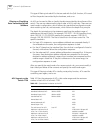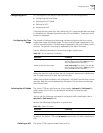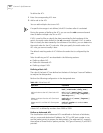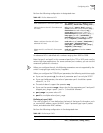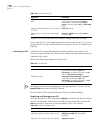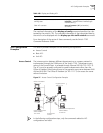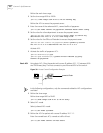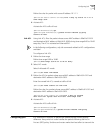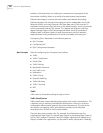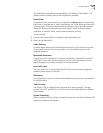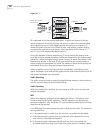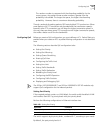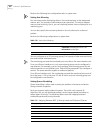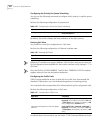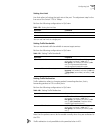
158 CHAPTER 7: QOS/ OPERATION
packets to the destination, not making any commitment or guarantee of the
transmission reliability, delay, or to satisfy other performance requirements.
Ethernet technology is currently the most widely used network technology.
Ethernet has been the dominant technology of various independent Local Area
Networks (LANs), and many Ethernet LANs have been part of the Internet. To
implement the end-to-end QoS solution on the whole network, one must consider
how to guarantee Ethernet QoS service. This requires the Ethernet switching
devices to apply Ethernet QoS technology and deliver the QoS guarantee at
different levels to different types of signal transmissions over the networks,
especially those having requirements of shorter time delay and lower jitter.
Configuring Qos is described in the following sections:
■ Qos Concepts
■ Configuring QoS
■ QoS Configuration Examples
Qos Concepts Tasks for configuring Qos Concepts are as follows:
■ Traffic
■ Traffic Classification
■ Packet Filter
■ Traffic Policing
■ Bandwidth Assurance
■ Port Traffic Limit
■ Redirection
■ Traffic Priority
■ Queue Scheduling
■ Traffic Mirroring
■ Traffic Counting
■ RED
Traffic
Traffic refers to all packets passing through a switch.
Traffic Classification
Traffic classification means identifying the packets with certain characteristics. This
is done by using a matching rule called the classification rule that is set by the
configuration administrator, based on the actual requirements. The rule can be
very simple. For example, traffic with different priorities can be identified
according to the ToS field in the IP packet header.
There are also some complex rules. For example, the information over the
integrated link layer (Layer-2), network layer (Layer-3) and transport layer (Layer-4),
such as MAC address, IP protocol, source IP address, destination IP address, and
the port number of an application, can be used for traffic classification. Generally,



